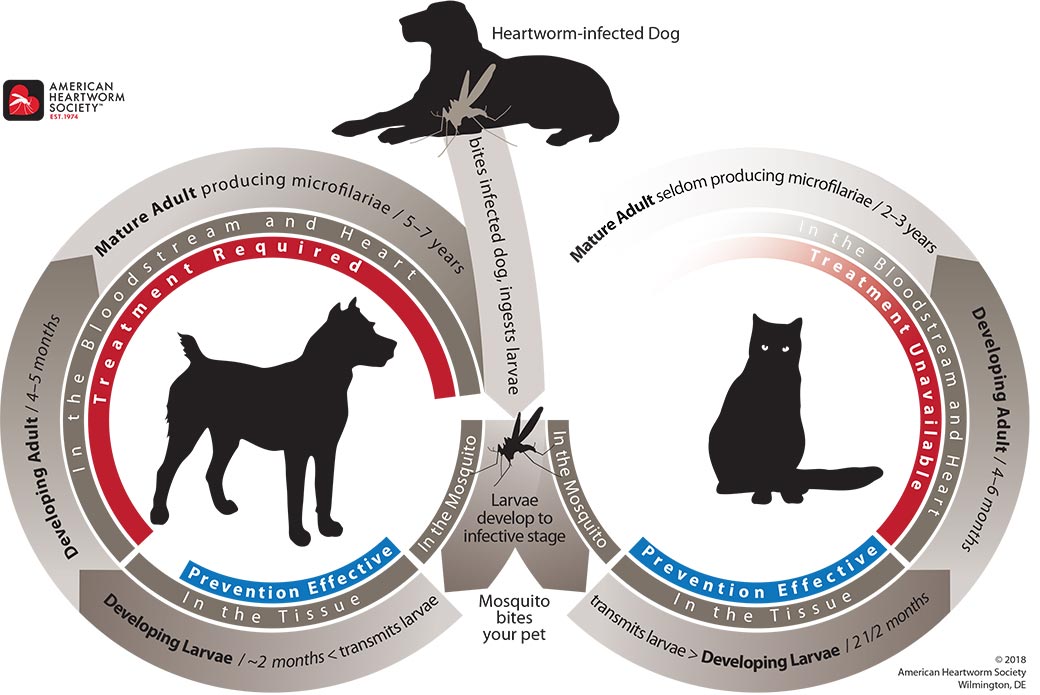By Dr. Jo Croswell
April is Heartworm Disease Awareness Month. As such, we would like to take the time to discuss this important disease so pet parents can be aware of common signs and symptoms.
What Is Heartworm Disease?
Heartworm disease can affect many animals, including dogs, cats and ferrets. It is caused by the parasite Dirofilaria immitis. Canines (such as dogs, foxes, coyotes and wolves) are the natural host to carry heartworms, but they require a mosquito vector to complete their life cycle and for transmission to other animals.
The worms primarily live in the heart, lungs and blood vessels of pets, but with severe disease can be found in other tissues as well. As the parasitic worms mature, they can grow to be very large and cause significant damage to these vital organs. Symptoms can range from lethargy and a mild cough to severe heart disease and death. Our veterinary team aims to prevent disease by treating the worms when they are in the premature phases before they develop and reproduce.

The Importance of Heartworm Prevention
Here at Brooklyn Park Pet Hospital, we see several cases of heartworm disease each year. Incidence of heartworm disease is increasing in our geographic area (Heartworm Incidence Maps) . When dogs test positive for heartworm disease, they have to go through an extensive treatment regimen. Unfortunately, there are no labeled treatments for cats or ferrets. As such, we cannot emphasize enough the importance of parasite prevention of this serious and potentially fatal disease.
Fortunately, we have several different prevention options for your pet. In addition to heartworm treatment and testing, our pet hospital provides monthly preventatives that you can pick up at their appointment or conveniently order through our online pharmacy. Discuss with one of our vets about their personal recommendations for your pet.
We also recommend heartworm testing once a year for dogs. Our vet clinic offers this at their annual wellness exams along with our other dog wellness services.
Feel free to call us at (612) 429-0552 to determine which parasite prevention option is best for your pet or to schedule an appointment or to refill your pet’s heartworm prevention medication!
For more information: American Heartworm Society
